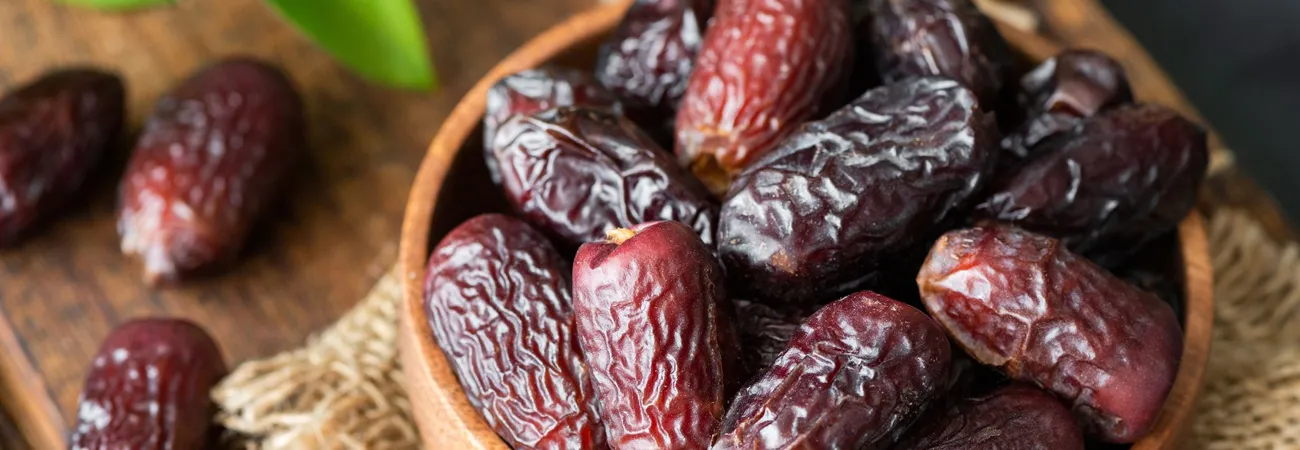i ECONOMY
The Sindh province produces the bulk of dates of export quality, but due to a lack of requisite facilities for processing and branding, a large quantity is exported in dried shape, fetching far less foreign exchange than the country’s potential. According to the ministry of food security data, annual date production in the country is estimated at 550,000 tonnes, with 50% of Sindh’s share. The rest is contributed by Punjab, Balochistan and Khyber Pakhtunkhwa. There are around 160 varieties of date palm in the country. However, Aseel of Khairpur in Sindh, Dhakki of DI Khan in Punjab and Begum Jangi of Makran, Balochistan are in popular demand owing to their exotic taste. According to figures, India used to import around 90% of the country’s total dry dates. The bulk of locally-produced dates are exported dry as the country lacks requisite facilities for processing and branding.
Around 95% of the export consists of dried dates and only about 5% is exported in the form of pasteurised fresh dates, which is less than 1% of the total date produce. Imtiaz Samijo, Director of the Sindh Horticulture Department, said that Pakistan ranks fifth in the world for date production. “It can easily improve its position and enhance production by improving farm management, pre-harvesting, harvesting and post-harvesting practices.” He said the country has the potential to supply fully processed high-quality dates in various styles, shapes and forms, including pitted/un-pitted whole dates, pressed date bricks, date chops, date paste in bulk as well as ready-to distribute small boxes/jars.
Currently, he said dry dates dominate the country’s exports because of high demand in India. “However, fresh dates fetch better prices globally. Through the government support in the form of financing and date farm infrastructure development, Pakistani dates can fetch handsome foreign exchange.”
“With a little value addition, dates can be used to make syrup, juice, paste, vinegar and so on to enhance the profitability manifold,” he said.
Samijo added that dried dates lose 60% of their weight and value. “In the absence of proper processing units or cold storage, the only option left with the farmers is drying their produce to save their crop. But, again due to the absence of proper drying plants, the farmers have to stick to the primitive and crude way of drying the fruit, which further deteriorates its value.” The Sindh horticulture department’s director said the country could turn this sector into a potent source of foreign exchange by paying attention to processing, value addition, packaging and adequate storage facilities.
“We live in a market-economy era where everyone looks for brands. We need high-valued fruits like others to claim space in the international market. Unfortunately, we feature nowhere despite being the fifth largest date producer,” he said. Without proper storage facilities, growers have no choice but to dry their dates. However, they do it in a very unhygienic way, because they lack mechanised dryers.
Pakistan’s first dates dehydration plant and cold garage was set up by a private firm in the Khairpur Special Economic Zone.
Credit: Independent News Pakistan (INP)









